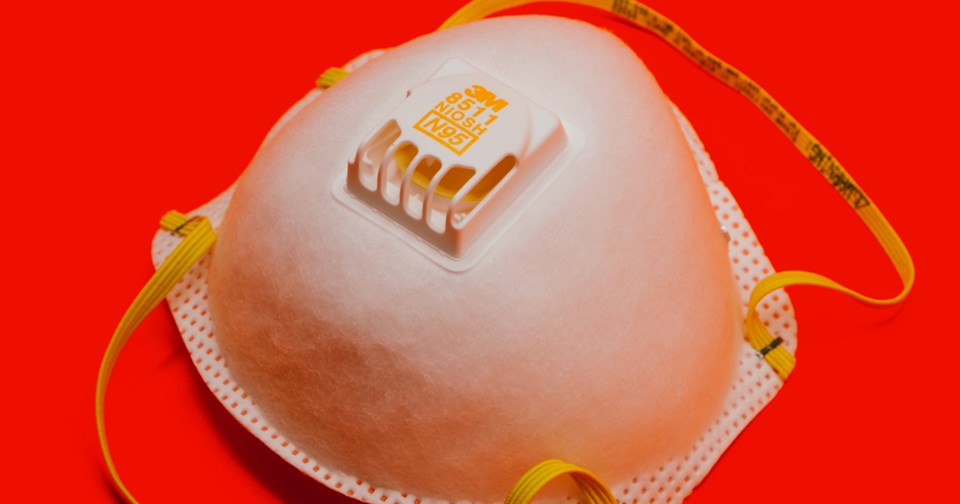If the Saskatchewan Health Authority runs out of a fresh supply of N95 masks, it will work with the University of Saskatchewan’s vaccine centre to decontaminate them to use them again.
Petrina McGrath, who’s on the authority’s personal protective equipment (PPE) task force, said that as of April 9, Saskatchewan has at least a one month’s supply of most essential protective equipment items, including N95 masks, surgical masks and gloves.
“The focus is currently on conserving existing PPE supplies, while actively procuring additional supplies through any and all venues that we can secure,” she said at a April 9 media conference.
Yet the authority is already working on contingency plans.
“The contingency plans are really important,” said Dr. Mike Kelly, who’s also on the PPE task force. “Hopefully, we don't get to the situation where our current supplies require them, but it's important that we have backups to backups to backups.”
That’s where the University of Saskatchewan’s Vaccine and Infectious Disease Organization-International Vaccine Centre comes in.
They are able to use a decontamination procedure – vaporized hydrogen peroxide (VHP) sterilization – that is routinely used to decontaminate its rooms and equipment to decontaminate N95 masks, which are designed to be used once and then disposed.
Volker Gerdts, the vaccine centre’s director, said the U.S. Food and Drug Administration has authorized the VHP decontamination procedure for N95 masks for emergency use.
“It was then also confirmed by our colleagues in Winnipeg, at the National Microbiology Lab, that you can use this procedure and even can undergo multiple decontaminations with this technique, while preserving mask effectiveness and fit.”
The vaccine centre said they can decontaminate a couple of thousand N95 masks each week. Each mask can be decontaminated five times.
The biggest cost to the process is transporting the masks to the University of Saskatchewan. The health authority said it was implementing procedures to collect used N95 masks.
Kelly said the health authority will publicly announce it is using decontaminated masks and will make sure they meet all of the standard fit testing and the other quality standards used for health masks.



